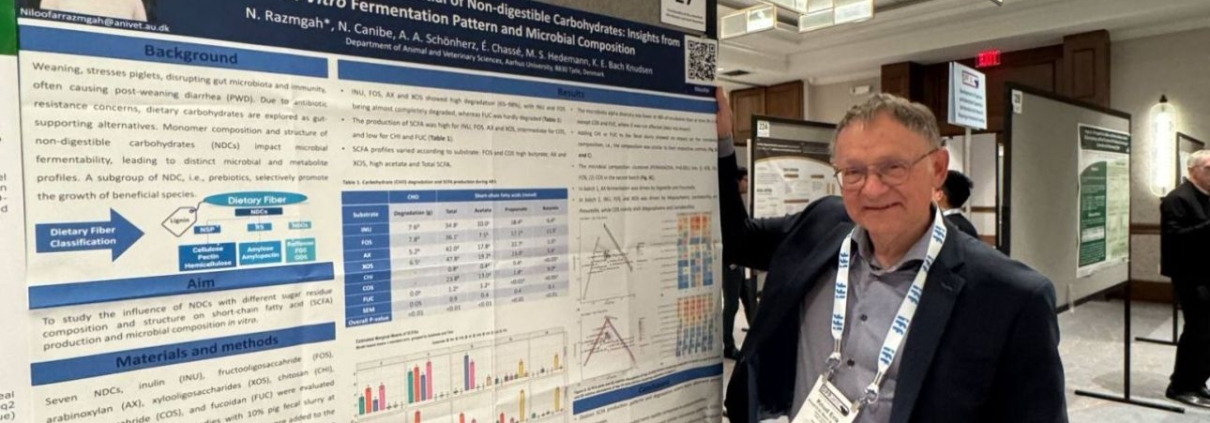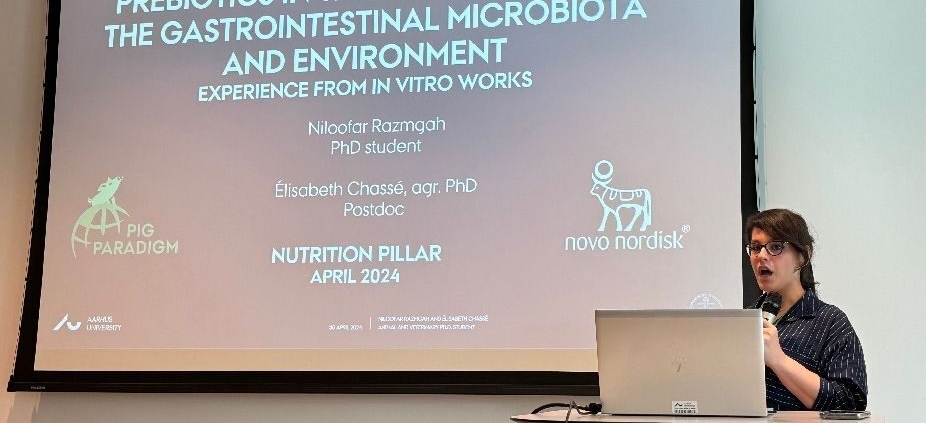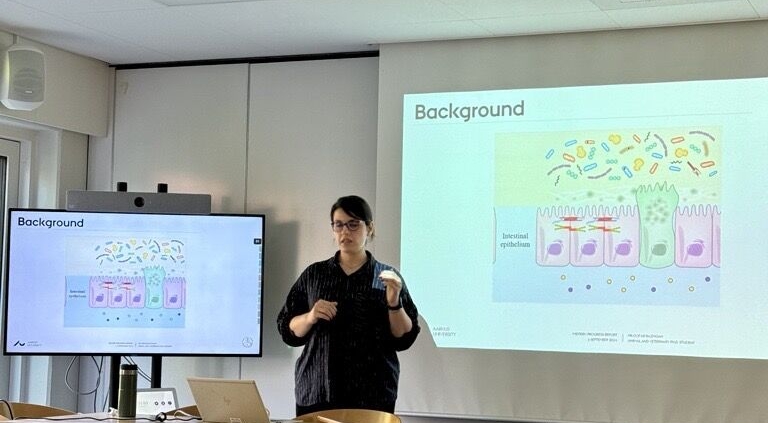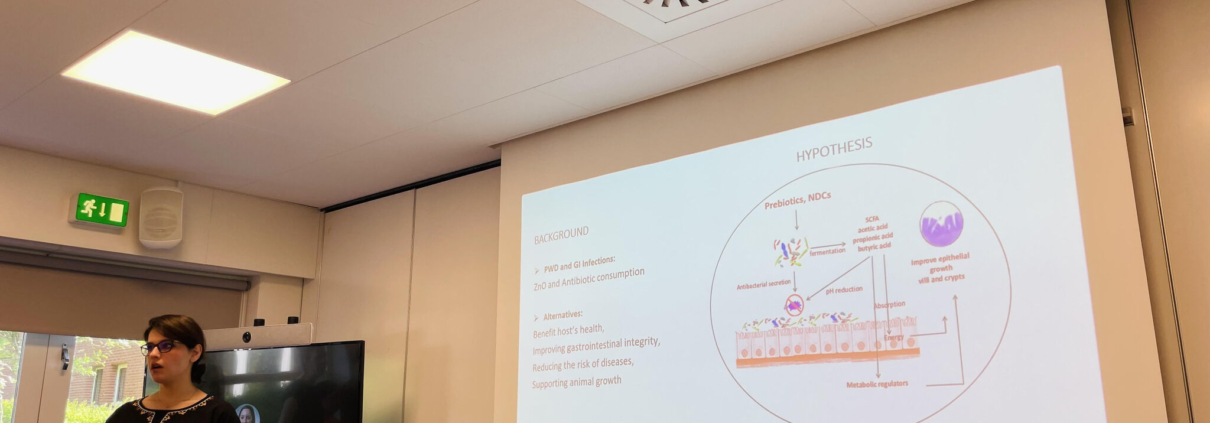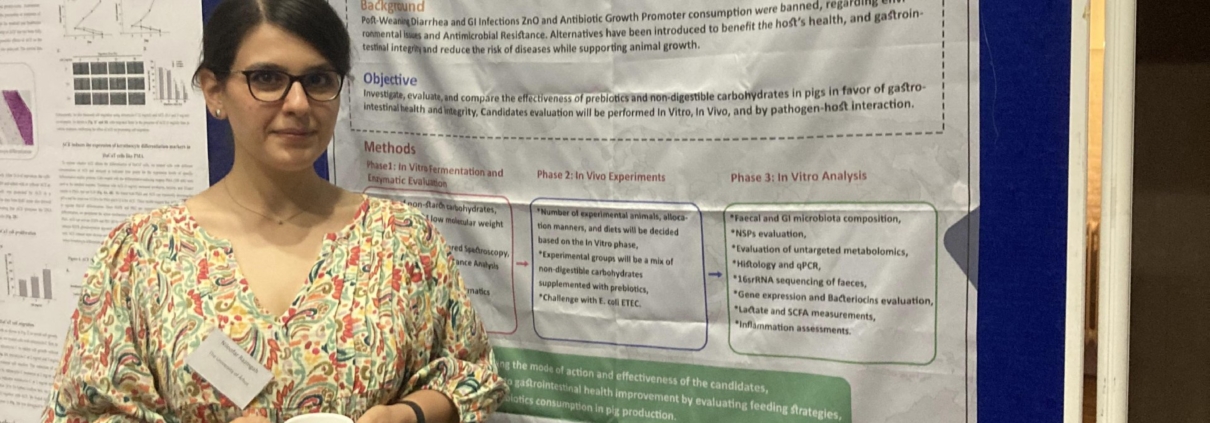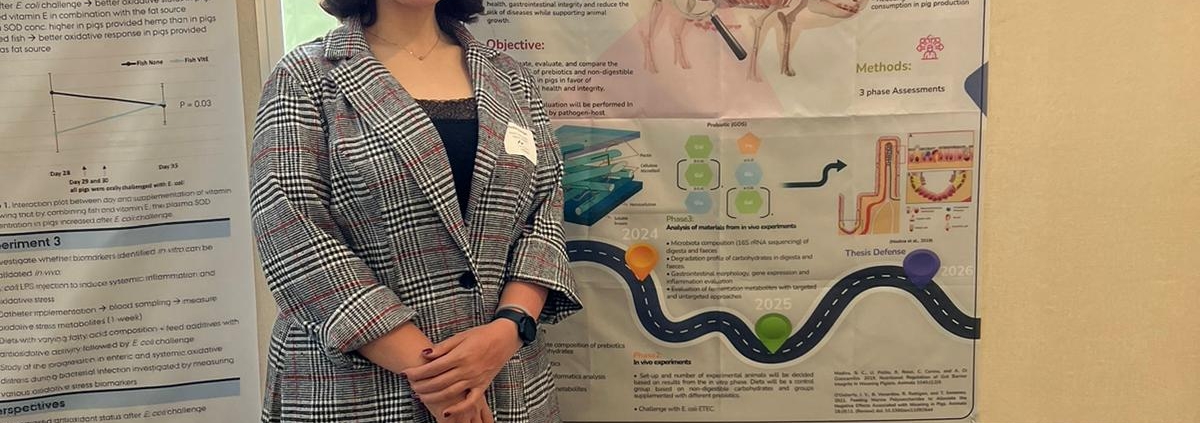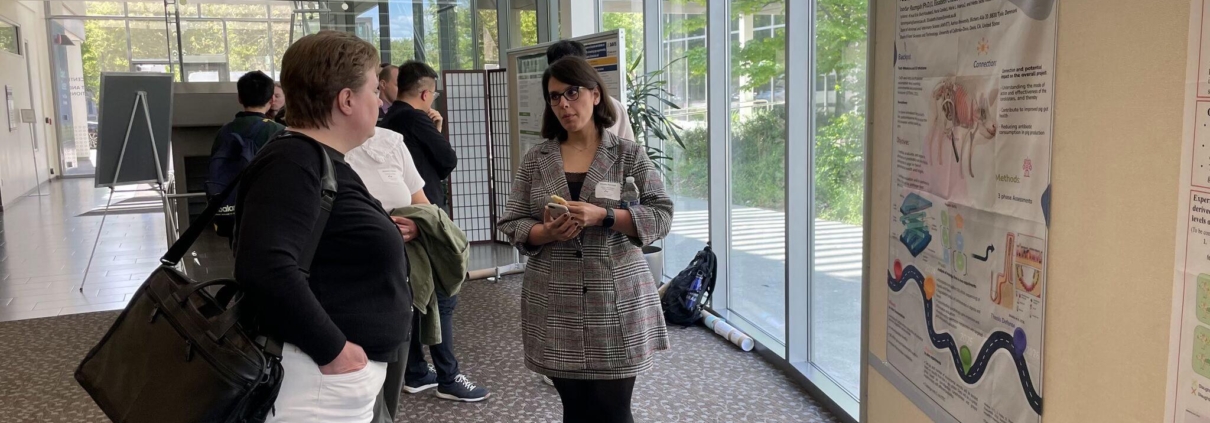I had the incredible honor of presenting my cutting-edge research at the prestigious DPP conference in May 2025, held at Lake Geneva, Wisconsin, USA. Pictured here are my supervisor and my poster proudly displayed at the venue. My presentation showcased a breakthrough in vitro batch fermentation experiment analyzing seven distinct oligosaccharides and polysaccharides to identify promising novel prebiotics using a sophisticated piglet inoculum model. The findings revealed remarkable shifts in microbiota composition, significant short-chain fatty acid production, and detailed carbohydrate degradation patterns, highlighting the potential for transformative advances in gut health. This high-impact work is a key part of my PhD project, generously funded by the Novo Nordisk Foundation.
I had the privilege to present my innovative in vitro batch fermentation findings at the PIG-PARADIGM Annual Meeting, held at Wageningen University, Netherlands. My research focused on evaluating seven diverse oligosaccharides and polysaccharides as potential next-generation prebiotics using a piglet inoculum model. The results unveiled significant insights into microbiota modulation, short-chain fatty acid production, and carbohydrate degradation, advancing our understanding of gut health in piglets. My presentation received excellent feedback, and I had the opportunity to engage in valuable networking with leading experts in the field. This cutting-edge work represents a pivotal component of my PhD project, supported by the Novo Nordisk Foundation.
I successfully passed my PhD qualifying exam with flying colors, an intense milestone assessed by an outstanding panel. The external examiner was Professor Thomas Thymann from the University of Copenhagen, a renowned expert in gut microbiology and animal nutrition whose groundbreaking work on gut health and early-life development has significantly advanced the field. Internally, my exam was evaluated by Professor Peter T. Thomsen, a highly respected researcher known for his contributions to animal science and nutrition. The exam was extremely successful, receiving numerous positive comments and enthusiastic feedback on the depth and innovation of my research. This achievement marked a pivotal moment in my PhD journey, fueling my motivation to push the boundaries of my work even further.
I had the honor to present my latest PhD findings at the Animal and Veterinary Section Meeting. My work on gut microbiota and prebiotic effects in piglets received great feedback and sparked engaging discussions with experts. This research is a key part of my PhD project, supported by the Novo Nordisk Foundation.
I had the privilege to present my poster at the prestigious 17th Summer Course on Glycosciences in Wageningen, Netherlands. The course was packed with cutting-edge discoveries and provided an exceptional platform for networking with leading experts and international peers. It was an inspiring experience that significantly broadened my scientific perspective and professional network.
I proudly took center stage at the inaugural PIG-PARADIGM Annual Meeting at UC Davis, USA—marking a major milestone in my PhD project. Presenting my groundbreaking work, I showcased transformative findings that captured the attention of leading scientists and industry experts. This event offered an unparalleled platform to connect, collaborate, and firmly establish myself as a rising star in the field of pig gut health and nutrition. The outstanding recognition and enthusiastic feedback I received reinforced my position at the forefront of this cutting-edge research.
I had the exceptional opportunity to discuss my work with Dr. Carolyn Slupsky, whose groundbreaking research explores the intricate relationship between diet, the gut microbiome, and human health. Utilizing a multidisciplinary approach that combines metabolomics, clinical data, gene expression profiling, and microbial community analysis, Dr. Slupsky advances our understanding of host-microbial co-metabolism. Her pioneering studies on the effects of food processing, agricultural practices, and plant health on nutrient content and food quality are shaping the future of personalized nutrition and health management. Engaging with her was an inspiring experience that enriched my perspective and opened exciting new avenues for collaboration.

